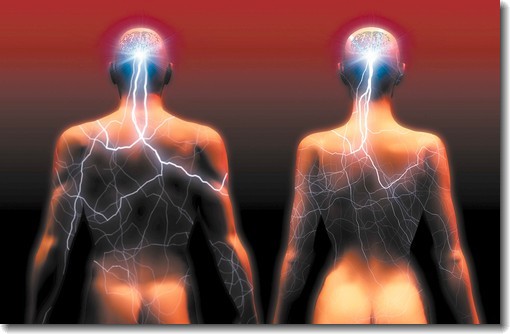The male Y chromosome may have a role in prolonging men’s lives and fighting cancer, scientists have said.
Research into 1,153 elderly men at the University of Sweden found those who had lost part of their Y chromosome died on average 5.5 years earlier than those who had not. Women live on average 7.5 years longer than men in Europe and the reasons behind this are not fully known.
Cancer Research said the study was “intriguing”. Scientists assessed how many blood cells had age-related loss of the Y chromosome (LOY) through blood tests in the men, aged between 70 and 84.
Tumour prevention
Men with a “significant amount” of loss died earlier, said researchers. LOY was associated with general risk of death in 637 out of the group of men and risk of death due to non-blood related cancer in 132 of the cases.
Men with a “significant amount” of loss died earlier, said researchers. LOY was associated with general risk of death in 637 out of the group of men and risk of death due to non-blood related cancer in 132 of the cases.
Researchers said the association between LOY and early death was significant when the results were adjusted for age and other health conditions. Women don’t have the Y chromosome, but have two Xs instead.
The co author of the study, Jan Dumanski from Uppsala University in Sweden, said: “Many people think the Y chromosome only contains genes involved in sex determination and sperm production.
“In fact, these genes have other important functions, such as possibly playing a role in preventing tumours.”
The study said Y chromosome genes were not expressed when LOY occurred, meaning its potential role in tumour prevention could be reduced.
Immune system
It said LOY in blood cells was associated with many different cancers, including those outside the blood system. Researchers said this could be because Y chromosome genes enabled blood cells to help with immuno-surveillance, where the immune system detected and killed tumour cells to prevent cancer. The finding means blood tests looking at the state of the Y chromosome could help predict a man’s risk of cancer, say the authors.
Head of health information at Cancer Research Dr Julie Sharp said: “This is an intriguing theory but more research is needed to establish whether loss of the Y chromosome really could be a predictor of cancer risk. “While a man’s risk of cancer does increase with age, there are things all men can do to stack the odds in their favour, such as not smoking, maintaining a healthy weight, eating healthily and cutting down on alcohol.”




